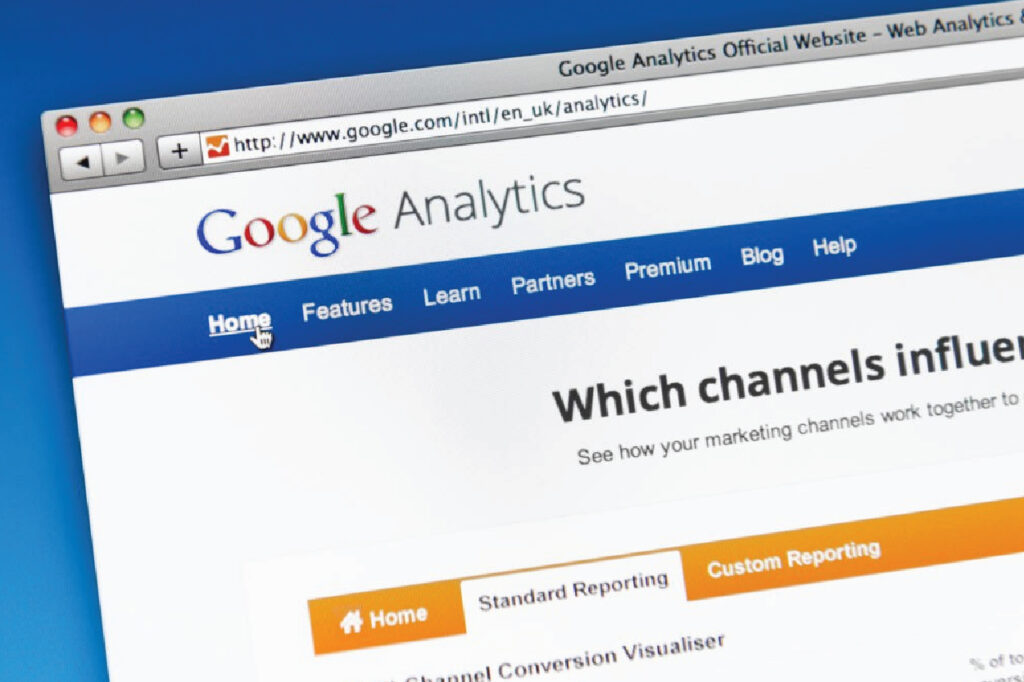A digital marketing strategy is a comprehensive plan outlining how a business will leverage online channels and platforms to achieve its marketing objectives. It involves defining goals, identifying target audiences, selecting appropriate digital channels (such as social media, search engines, and email), creating relevant and engaging content, optimizing for search engines, implementing paid advertising, and analyzing performance through metrics and key performance indicators. The strategy aims to build brand awareness, drive traffic, generate leads, and ultimately achieve business goals by effectively utilizing the opportunities presented by the digital landscape. Regular monitoring and adjustments are crucial to adapt to evolving trends and ensure the strategy remains effective over time.
Kinds of Digital Marketing

Digital marketing encompasses various channels and strategies to reach and engage with a target audience in the online space. Here are some common types of digital marketing.
Search Engine Optimization (SEO)
Optimizing online content to improve its visibility in search engine results, thereby increasing organic (non-paid) traffic to a website.
Search Engine Marketing (SEM)
Using paid advertising on search engines, often in the form of pay-per-click (PPC) campaigns, to increase visibility and drive targeted traffic to a website.
Social Media Marketing (SMM)
Utilizing social media platforms (such as Facebook, Instagram, Twitter, LinkedIn) to promote products or services, build brand awareness, and engage with the audience through organic and paid strategies.
Content Marketing
Creating and distributing valuable, relevant, and consistent content to attract and retain a target audience. This can include blog posts, articles, videos, infographics, and more.
Email Marketing
Sending targeted messages and promotional content to a specific audience through email to nurture leads, build customer relationships, and drive conversions.
Affiliate Marketing
Partnering with affiliates or third-party individuals/organizations to promote products or services in exchange for a commission based on sales or leads generated through their efforts.
Influencer Marketing
Collaborating with influencers or individuals with a significant online following to promote products or services to their audience, leveraging their credibility and reach.
Content Syndication
Distributing content across various platforms and websites to increase its reach and visibility, often done through partnerships or content-sharing agreements.
Video Marketing
Using video content to engage and connect with the audience, whether through social media, YouTube, or other video-sharing platforms.
Mobile Marketing
Tailoring marketing strategies for mobile devices, including mobile-optimized websites, mobile apps, and location-based services to reach users on smartphones and tablets.
Remarketing/Retargeting
Showing targeted ads to users who have previously visited a website or interacted with a brand online, aiming to re-engage and encourage them to complete a desired action.
Chatbot Marketing
Utilizing chatbots to interact with users on websites or messaging apps, providing information, assistance, and personalized recommendations.
Each type of digital marketing has its strengths and is suitable for different objectives. A comprehensive digital marketing strategy often involves a combination of these channels to create a well-rounded and effective online presence.
Digital Marketing Examples

With some examples of digital marketing you’ll be able to understand better about this niche.
Search Engine Optimization (SEO)
Example: A company optimizes its website content and structure to appear at the top of search engine results for relevant keywords, increasing visibility and organic traffic.
Search Engine Marketing (SEM)
Example: An e-commerce site uses Google Ads to run a PPC campaign, ensuring its products appear prominently in search results when users search for specific terms related to their offerings.
Social Media Marketing (SMM)
Example: A fashion brand creates engaging posts on Instagram and Facebook, showcasing new collections, interacting with followers, and using paid advertising to target a specific demographic.
Content Marketing
Example: A software company maintains a blog with articles and guides that address common industry challenges, attracting a relevant audience and establishing thought leadership.
Email Marketing
Example: An online retailer sends personalized email newsletters to its subscribers, featuring new product arrivals, promotions, and exclusive discounts to encourage repeat purchases.
Affiliate Marketing
Example: An e-learning platform partners with influencers and bloggers who promote the platform’s courses through unique affiliate links, earning a commission for every course purchase made through their referral.
Influencer Marketing
Example: A beauty brand collaborates with a popular makeup artist on YouTube, who creates tutorials using the brand’s products, reaching a wide audience and leveraging the influencer’s credibility.
Video Marketing
Example: A tech company creates a series of instructional videos on YouTube demonstrating how to use their products, addressing customer queries and building brand loyalty.
Mobile Marketing
Example: A restaurant chain uses location-based mobile advertising to send special offers and promotions to users’ smartphones when they are in close proximity to one of their locations.
Remarketing/Retargeting
Example: An online retailer displays ads for products that a user viewed but did not purchase, encouraging them to return to the website and complete the transaction.
Chatbot Marketing
Example: An e-commerce website integrates a chatbot on its homepage to assist customers in finding products, answering queries, and guiding them through the purchase process.
How to Create a Digital Marketing Strategy for Small Businesses

Creating a digital marketing strategy for small businesses involves a systematic approach to maximize online visibility, engage with the target audience, and achieve business objectives. Here’s a step-by-step guide to help you create an effective digital marketing strategy.
Define Your Goals
Clearly outline your business objectives. Examples include increasing website traffic, generating leads, boosting online sales, or enhancing brand awareness. Ensure your goals are specific, measurable, achievable, relevant, and time-bound (SMART).
Know Your Target Audience
Understand your ideal customers, their preferences, behaviors, and pain points. Define buyer personas to guide your marketing efforts and tailor your strategies to resonate with your audience.
Conduct a Digital Audit
Evaluate your current online presence, including your website, social media profiles, and other digital assets. Identify strengths, weaknesses, opportunities, and threats to inform your strategy.
Choose Relevant Digital Channels
Select the most suitable digital channels for your business. This may include social media (e.g., Facebook, Instagram, Twitter), search engines (SEO and SEM), email marketing, content marketing, and possibly others based on your target audience.
Optimize Your Website
Ensure your website is user-friendly, mobile-responsive, and optimized for search engines. Implement SEO best practices to improve visibility in search results.
Create Valuable Content
Develop a content strategy that provides value to your audience. This can include blog posts, videos, infographics, and other content that addresses customer needs and interests.
Social Media Strategy
Choose social media platforms where your audience is most active. Create a content calendar, engage with your audience, and use a mix of organic and paid strategies to promote your products or services.
Email Marketing Campaigns
Build and nurture relationships with your audience through targeted email campaigns. Provide valuable content, exclusive offers, and personalized communication to encourage customer loyalty.
Implement Paid Advertising
If budget allows, consider using paid advertising on platforms like Google Ads or social media to boost visibility and reach your target audience more effectively.
Monitor and Analyze
Use analytics tools to track the performance of your digital marketing efforts. Regularly analyze key metrics and adjust your strategy based on what is working and what needs improvement.
Budget Allocation
Allocate your budget wisely across different digital marketing channels. Experiment with different strategies and adjust your spending based on the channels that deliver the best results.
Stay Updated and Adapt
Keep up with industry trends, algorithm changes, and new technologies. Adapt your strategy accordingly to stay competitive in the dynamic digital landscape.
Remember, consistency is key in digital marketing. Execute your plan consistently, and be willing to adapt based on feedback and results. Regularly reassess your strategy to ensure it aligns with your business goals and effectively reaches your target audience.
Digital Marketing Templates
There are plenty of websites that allow you use a marketing templates for digital sharing and scheduling. Here are a few popular ones.
Content Calendar Template
Plan and organize your content creation and publication schedule.
Tools: Trello, Asana,Airtable, CoSchedule, HubSpot Content Strategy Tool, ClickUp, Monday.com, Wrike, Notion.
SEO Audit Template
Evaluate and optimize your website’s search engine performance.
Tools :Google Search Console, SEMrush, Ahrefs, Moz Pro, Screaming Frog SEO Spider, HubSpot’s Website Grader, Sitebulb, Raven Tools, SEO PowerSuite, Yoast SEO WordPress Plugin
Email Marketing Campaign Template
Plan and execute targeted email campaigns to nurture leads and engage customers.
Tools: Mailchimp,Constant Contact, HubSpot,GetResponse, Campaign Monitor,Sendinblue, Benchmark Email, ActiveCampaign, MailerLite, AWeber
Nifty Tips for Success

- Customization for Specific Needs
Tailor templates to suit the unique needs and goals of your business. Whether it’s a content calendar, social media plan, or email campaign template, ensure that the fields and categories align with your specific objectives and target audience.
- Consistent Branding
Maintain a consistent brand image across all digital marketing materials. Customize templates with your brand colors, logos, and messaging to reinforce brand identity. Consistency helps in building brand recognition and trust among your audience.
- Regular Updates
Digital marketing is dynamic, and strategies evolve. Regularly update your templates to reflect changes in goals, target audience preferences, or industry trends. This ensures that your plans stay relevant and effective over time.
- Collaboration and Communication
Use templates as collaboration tools by sharing them with team members involved in your digital marketing efforts. Collaborative platforms such as Google Workspace or project management tools enable real-time updates and foster effective communication among team members.
- Performance Tracking and Analysis
Incorporate metrics and tracking mechanisms into your templates to measure the performance of your digital marketing campaigns. Whether it’s open rates for email campaigns, engagement metrics for social media, or conversion rates for paid advertising, regularly analyze the data and use it to refine your strategies.
Digital Marketing Agency Services
In conclusion, a digital marketing agency like Brandigits.net offers a diverse range of services aimed at helping businesses thrive in the online space. From strategic planning to execution, these agencies play a pivotal role in enhancing brand visibility, driving targeted traffic, and achieving business goals. The comprehensive services typically include search engine optimization (SEO), social media marketing (SMM), content creation, email marketing, paid advertising, analytics, and more. By leveraging their expertise and staying abreast of industry trends, digital marketing agencies enable businesses to navigate the dynamic digital landscape successfully. The collaborative relationship between a business and a digital marketing agency is essential for crafting and executing strategies that not only meet but exceed objectives, ensuring sustained growth and success in the ever-evolving online marketplace.
